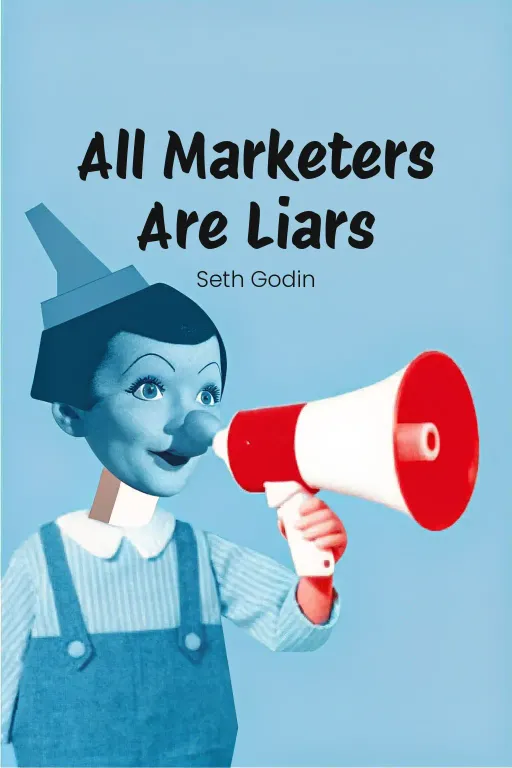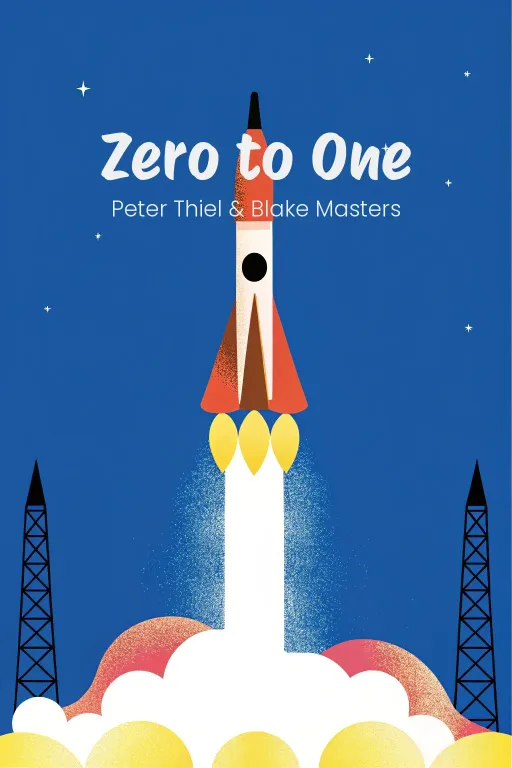
Own the Room: Persuasion Secrets
Podcast by Beta You with Alex and Michelle
An Innovative Method for Presenting, Persuading, and Winning the Deal
Own the Room: Persuasion Secrets
Part 1
Alex: Hey everyone, welcome! Today, we're tackling something that can seriously level up your communication game—no matter if you're pitching a product, an idea, or even just selling yourself. Picture walking into a room and just “owning” it, making people listen intently and “want” what you have. Sounds like a superpower, doesn't it? Well, that's exactly what we're unpacking today. Michelle: Exactly, Alex. And we're doing it through the lens of Oren Klaff's book, Pitch Anything. This isn’t your typical business book, folks. Klaff offers a totally different take on the psychology of pitching—it’s about controlling the conversation, understanding social dynamics, and using both logic and emotion. Seriously, this is more than just another "how-to" guide. Alex: Totally! He explains how to grab attention using techniques like "frame control" and the STRONG method, backing it all up with real-world examples, like that famous Airport Deal story. The book basically teaches you how to balance status, authority, and storytelling to make your pitch stick. Michelle: So, Alex, we're going to break down three key ideas from Klaff. First, frame control—how to subtly steer any interaction in your favor without seeming aggressive, right? Second, status and prizing—basically, how to position yourself as the most desirable "option" in the room. And third, emotional storytelling—that secret ingredient that transforms boring facts into something people actually remember. Alex: Exactly, Michelle. Think of this as your essential guide to mastering the hidden forces behind genuine persuasion. It's psychology meets strategy, with a little bit of storytelling thrown in. Shall we jump right in?
Frame Control
Part 2
Alex: Okay, so let's dive right in with frame control, which is really the foundation of Klaff's method. It's all about shaping how people perceive an interaction, right? Klaff believes that in any negotiation—a pitch, a conversation—there’s this underlying struggle for narrative control and authority. Michelle: What's crazy is that it feels so obvious once you hear it, but most of us just don't think about it consciously. How often do you walk into a meeting and actually consider who's setting the tone? Usually, we're just reacting, aren't we? Alex: Exactly! That's what makes frame control so powerful. It's not just about being confident or knowing your stuff; it's about actively shaping how you're perceived and guiding the interaction so your message resonates the way you want it to. And it makes sense, doesn't it? Power dynamics are always at play. Klaff just helps us recognize them and turn them to our advantage. Michelle: Right, but some people might hesitate here. Manipulating narratives, that can sound a bit...tactical. Almost like social engineering. How does Klaff avoid that perception of calculation, do you think? Alex: Well, he frames it as deliberate leadership rather than manipulation. He talks about "frames clashing," right? When two people meet, their frames – their perspectives, authority, assumptions - naturally collide. If you're not aware of this, you risk being dominated by someone else's frame, especially if they're using a "power frame." Michelle: Ah, yes, the infamous power frame. That's where someone tries to steamroll you, right? The investor who dismisses your ideas, the boss who interrupts you mid-sentence, even that friend who always has to one-up your stories. Alex: Exactly. Klaff's response to the power frame is "power-busting." And this is where his methods become really actionable. Instead of getting rattled or defensive, which just reinforces their dominance, you use humor or controlled defiance to reset the dynamic. He talks about a pitch meeting where an investment banker kept interrupting him, trying to intimidate him. Klaff responded with a witty remark, reasserting his authority without escalating the conflict. Michelle: So, for power-busting, you're basically using humor as a weapon? Interesting. But isn't that risky? Humor can diffuse tension, sure, but it can also bomb or offend someone. Do we all need to be stand-up comedians for this to work? Alex: No, no, you don't have to be Jerry Seinfeld, Michelle. It's less about being hilarious and more about using humor or wit strategically to disarm the other person and project confidence. It's about showing you're not intimidated, right? He talks about how "light-hearted retorts" can shift the energy in your favor. The key is subtlety—playful, not sarcastic or confrontational. Michelle: Fair enough. Though, I wonder how universally applicable this is. Humor works in a boardroom or an investor pitch—but what if you're dealing with someone who's all business, a total straight-shooter? Humor might not even register. Alex: That's where his other strategies come in, like the intrigue frame or countering urgency by imposing your own time constraints. If someone plays the time card—pressuring you to decide quickly—Klaff suggests flipping the script by setting your own deadlines. It’s a subtle but effective way of saying, “Hey, I’m busy too; let’s keep this efficient.” Michelle: I like that—it takes the pressure off and puts you back in control. And the intrigue frame, that's where you tease information to keep people hooked, right? Like dangling a carrot? Alex: Precisely. It’s capitalizing on human curiosity. By presenting enough to spark interest but holding back the full details, you create anticipation. Klaff uses this brilliantly in his pitches. He'll hint at a game-changing "unique selling point" but only reveal it once he's emotionally engaged the audience. It's a way to maintain focus without getting bogged down in details. Michelle: Clever. It’s psychological foreplay for the business world. And that leads nicely into Klaff’s criticism of the "analyst frame," doesn't it? The numbers-obsessed approach people often take. Alex: Exactly. Klaff cautions against getting trapped in the analyst frame, where the conversation devolves into a logical black hole of data and spreadsheets. While facts are important, he emphasizes the power of emotional storytelling. You need to recognize when the conversation's heading into analyst territory and steer it back to a larger, more compelling narrative. Michelle: Like that story about Tom Davis and Bill Belzberg—the Beverly Hills pitch. Poor Tom—all he cared about were the numbers, and Belzberg just crushed him. If Tom had focused on a grand vision instead of drowning in financial metrics, he might not have been on the defensive the whole time. Alex: Exactly. That story's a great cautionary tale. Klaff shows how quickly you can lose control when you're unprepared for frame clashes. Belzberg ruthlessly enforced that analyst frame, completely dominating the room. If Tom had used the intrigue frame or shifted to a moral authority frame, he could have rebalanced the dynamic and saved the pitch. Michelle: Moral authority frame—that’s the “here’s why this matters beyond just dollars and cents” approach, right? Could Tom have refocused with something like, “This isn’t just another development—it’s a regional cornerstone that could redefine the area,” to reframe the stakes? Alex: Exactly! That's a perfect example of elevating the conversation beyond transactional details to an emotional, purpose-driven level. Frame control isn't about forcing dominance; it's about shifting the perspective to align with your goals. Klaff’s tactics, while bold, are ultimately designed to create an environment where your message has the greatest impact.
Status and Prizing
Part 3
Alex: Okay, so, we've talked about frame control. Now, we need to understand how status dynamics tie into a pitch, right? This is where Klaff kind of flips the traditional power dynamics on its head. He brings in this concept of “status” and this strategy called “prizing”. Together, they redefine authority and value in a room, and they “really” build on top of that frame control foundation. Michelle: Right. The pitch game levels up, basically. Status is all about being perceived as higher or lower than everyone else in the room, isn’t it? What’s interesting is that Klaff emphasizes that status isn’t fixed. It can change at any moment, based on how you act. And honestly, Alex, isn’t it kind of crazy how much depends on these unsaid power dynamics? I mean, nobody teaches you this stuff, like, "Hey, don’t seem too eager or they won’t respect you," you know? Alex: Exactly! Often, it’s these subtle social cues that totally dictate how a pitch goes. Klaff breaks it down “really” well and offers practical strategies, starting with this one crucial thing: avoiding beta traps! These push you into a lower-status position without you even realizing it. Like, agreeing to unreasonable requests, putting up with dismissive behavior, or just seeming too eager to please. It’s about setting boundaries, but staying cool while doing it. Michelle: That’s a “really” underappreciated skill, isn’t it? To even notice you’re walking into a beta trap. Like, Klaff talks about being kept waiting in the lobby before a meeting? Classic power move, right? You’re just sitting there, feeling like you’ve already lost. What do you think of his suggestion for this, where you kind of take back control by politely pointing out that your time is valuable? Alex: It’s smart, right? Saying something like, "Let’s make the most of our scheduled time," you're being subtle but firm. You're reminding them that your time is just as valuable as theirs. It’s not a confrontation, but it immediately resets the dynamic. And, importantly, it shows you respect yourself enough to set boundaries. This can work in all kinds of situations, not just big, high-stakes pitches. Michelle: Okay, but here's where I start to get skeptical. Doesn’t this kind of assertiveness risk coming across as arrogant? I mean, especially if you’re pitching to someone who cares a lot about status themselves, wouldn't pushing back, even a little, just rub them the wrong way? Alex: That’s a valid point. It “really” comes down to how you say it. Klaff stresses confidence, sure, but it needs to be professional and respectful. That’s where projecting authority through your body language, tone, and even timing comes in. If someone interrupts you or criticizes you, responding calmly—like, "That's a great point, let me explain our thinking behind that"—shows confidence, but not defiance. You're dealing with dominance with composure, and that automatically elevates your status. Michelle: So, it’s about not giving them a reason to see you as aggressive while still refusing to be a pushover. Right. But then there's that wildcard strategy that Klaff talks about: subtle defiance. This one I find “really” interesting, because it’s risky, but it can be amazing if you pull it off. Using humor or playfulness to kind of disrupt their power... Like when he flips a negative comment about costs into a funny line: "It’s not cheap, that’s true, but redefining success never is." Alex, that is bold. I mean, if you don’t deliver that right, it could completely backfire. Alex: It’s a very fine line. Humor or playful defiance only works if you “really” read the room and calibrate it perfectly. But when it works, it’s super powerful! It shows you’re unshaken, sharp, and in control. Klaff uses this to remind them he's not begging for approval; he’s offering something they'd be lucky to get. It’s the ultimate status move. Michelle: And that leads right into the concept of prizing, doesn’t it? Where instead of you chasing them, you flip the dynamic so they’re chasing you. Personally, I think this is one of the most interesting, yet most difficult, things in Klaff’s strategy. Most people are so used to selling themselves that prizing feels “really” weird. Alex: Exactly. It's why it's so powerful! The psychology behind prizing is all about scarcity and exclusivity—two of the strongest motivators! If you position yourself or your product as limited and highly sought after, you create urgency and value without sounding desperate. Klaff's example of saying, "We're only working with three partners on this launch" is perfect. It shows scarcity, but also confidence. You’re saying, “Either you take this opportunity, or someone else will.” Michelle: Okay, so say you're in a room with a tough crowd. How does prizing work practically? I’m thinking about that story with Jonathan, the skeptical investor. He comes into the meeting radiating dominance, interrupting, questioning everything, clearly judging Klaff. If there’s one thing about investors like Jonathan, it’s that they don’t chase anything. So, how did prizing even work there? Alex: That’s what makes that story so interesting. Klaff didn’t get defensive, which would have been exactly what Jonathan wanted. Instead, he held back key details of the proposal, implying that his project wasn’t for everyone—that you needed a certain level of insight to appreciate its value. By doing that, he subtly positioned himself—and the opportunity—as the prize. Jonathan, who was used to everyone trying to impress him, became interested because Klaff wasn’t bending over backward to please him. Michelle: And the result? Jonathan goes from being a skeptical critic to an eager buyer. That’s a fantastic turnaround! But let’s not forget what made it work: Klaff’s discipline. Let’s be honest, most of us would have either tried too hard to win Jonathan over or just cracked under the pressure of his constant scrutiny. Alex: Exactly. Klaff’s skill was staying calm and controlling the flow of information. By staying composed and sticking to his strategy, he completely changed the dynamic. It’s a textbook example of status management and prizing. Together, they create a magnetic effect. It’s not about convincing someone anymore; it’s about inviting them to join something exclusive. Michelle: And that’s the core point, isn't it? Whether it’s status or prizing, the goal isn’t to dominate, it’s to create a dynamic where others view you as crucial. It's a tough balance to strike, but if you nail it, you're not just pitching, you're changing how people see you and how they react to you.
Emotional Engagement and Storytelling
Part 4
Alex: Okay, so now that we've established status and prizes as key elements, let's talk about crafting the pitch itself to “really” connect. This is where Oren Klaff’s method gets interesting. It's about weaving in emotional engagement and compelling storytelling to bridge that gap between psychological tactics and real-world delivery. It's about creating a memorable and persuasive experience. Michelle: Exactly! You can play all the status games you want, but if you don’t strike an emotional chord, you've lost the battle. So tell me more about what Klaff means by engaging emotions through "hot cognitions?" Alex: Right, so "hot cognitions" are those gut-level, emotional responses that drive our decision-making. Klaff's point is that while logic – what he calls "cold cognition" – definitely plays a role, it's those emotional triggers that ultimately push us to act. Think about it: when a story grabs you, when you feel a sense of urgency, you're way more likely to jump in than if someone just throws numbers at you. Michelle: Agreed, no one gets inspired by a spreadsheet! So how does Klaff put this into practice? Isn’t the intrigue frame his go-to method for immediately grabbing people? Alex: Precisely! The intrigue frame is all about injecting suspense and unresolved tension right from the start to captivate your audience. The goal is to use that natural human curiosity to your advantage. For example, you could kick off a pitch by saying something like, "What if I told you we took a company headed for bankruptcy and turned it into a market leader in just six months?". It’s a hook that makes people need to know how, keeping them glued to their seats even before you get into the nitty-gritty. Michelle: It's like a movie trailer – just enough to make you desperate to see the whole thing, without revealing too much. Very Hitchcockian! Alex: Totally! Klaff's approach is cinematic. It’s not just about creating intrigue. It's about structuring your pitch into a compelling story. That's where tools like the prize frame come in, creating urgency by making your offer seem exclusive and scarce. Michelle: Ah, the prize frame! Making people feel like they need to compete for something. It’s pure psychology. Luxury brands do this all the time: "Limited edition, available by invitation only". You're not just buying a product; you're buying status, access… Alex: Exactly. Now, what's “really” clever is how Klaff combines this with a moral authority frame – tapping into your “why,” your higher purpose, to add depth to the pitch. It’s not just “Buy this because it’s exclusive,” but “Buy this because it aligns with your values and helps solve a problem that’s bigger than all of us.” The classic example is framing a pitch not as just making profit, but as creating jobs and revitalizing communities. Michelle: Smart move. It appeals to something deeper than pure self-interest. It's like hitting two emotional buttons simultaneously: scarcity and altruism. And, of course, all this leverages the power of storytelling, right? Alex: Absolutely. Storytelling is the vehicle that drives these frames and combines emotional hooks with content people can actually connect with. Klaff’s big on how effective storytelling has to weave together both logical and emotional elements. He drills down on two key ingredients: tension and stakes. Without them, he says, your story just falls flat. Michelle: Which, I guess, explains why so many pitches fail. People just spout facts without creating any "edge-of-your-seat" feeling. I'm thinking about Klaff's use of tension in the Airport Deal pitch, that’s the perfect example of how to suck investors into the narrative, right? Alex: Exactly. In the Airport Deal, they presented their project as the solution to a looming crisis – a million extra passengers threatening gridlock at LAX. They framed their project as the key to saving the day. That threat created immediate emotional stakes. Then, by talking about jobs and community benefits, they made it human. The investors weren't just buying into numbers; they were buying a solution with real social impact. Michelle: The key is the stakes weren’t abstract. It wasn’t “imagine a transportation solution." It was "this is a “real” problem your investment can solve right now, for “real” people." Hitting that sweet spot between urgency and relatability is how you nail it emotionally. Alex: Exactly! And, you know, in some ways, Mother Teresa is an even better example of prioritizing emotion. Her approach with those doctors… incredible. She didn't lead with statistics about the health crisis in Tijuana. She shared human stories and simply asked, "Will you come and see for yourself?". Michelle: Yeah, and that simplicity was brilliant. It put the spotlight on the doctors’ own values without being preachy. She wasn't shaming them, but inspiring them to act by appealing to their humanity. Alex: And it worked! That's the point of Klaff's emphasis on emotional resonance. She framed the situation as a personal, direct challenge rather than a distant problem, immediately dissolving their professional detachment. Her story is solid evidence that even the most analytical people are driven by emotion when you approach them the right way. Michelle: Exactly! It’s a powerful reminder that often the simplest stories are the most effective. Those doctors had probably heard every logical argument under the sun, but it was that direct, emotionally charged plea that finally broke through. That’s the essence of using storytelling to drive action – less about dazzling people with data and more about making them feel personally invested. Alex: And tying it back to Klaff, it's about structuring your pitch so that emotional engagement leads naturally into a crystal-clear, simple core message. By starting with those "hot cognitions" – storytelling, tension – you hook them emotionally. Then, when you deliver the core of your pitch, they're already primed and ready to listen and act. Michelle: So the big takeaway: If you're not weaving emotional engagement and storytelling into your pitch, you're leaving your most powerful weapon on the table. This isn't just "fluff"; it's the psychology of what gets people to truly care. Alex: Exactly. It’s not about manipulation. It's about building a “real” connection that truly allows them to see the value you’re offering – not just logically, but emotionally. That's what makes a pitch go from something forgettable to something truly unforgettable.
Conclusion
Part 5
Alex: Okay, so to recap, we’ve “really” broken down the key elements of Oren Klaff’s “Pitch Anything”. Frame control—how to basically win the unspoken battle of who controls the narrative. You do that by shaping how people see things using things like busting power dynamics with humor, and creating intrigue. Then, we talked about status and prizing. Klaff kind of flips things around there, right? He shows you how to avoid those beta traps, subtly, but effectively, show your authority, and position yourself as the prize. And finally, how weaving in emotion and storytelling ties everything together, using what he calls hot cognitions and stories that people can relate to, so your pitches “really” grab people, both logically and emotionally. Michelle: Right, it's not just about closing a deal. It's about understanding the psychology that goes into influencing people. How do you craft these messages that “really” stick with people? Whether you're pitching investors, or just having a tough conversation, these are important lessons. Alex: Exactly! I hope people walk away from this episode thinking about how much more strategically you can approach your interactions. Klaff’s work reminds us that how we communicate is just as important as what we communicate. So, think about this: the next time you're getting ready to pitch, don't just focus on the details of what you're saying. Think about how it's coming across. Are you creating intrigue? Are you projecting authority? Are you telling stories that connect with people on an emotional level, as well as a logical one? That is where the real magic happens. Michelle: Yeah, give this a shot: in the next week, see if you can spot the frames at work in your everyday conversations. And, you know, even better, try messing with them a little bit. Throw in a little intrigue, play with the status a bit, tell a story. It's kind of amazing how much power you can get just by being aware of all this. Alex: Absolutely. It’s a “really” great way to put what Klaff teaches into action. Well, this has been a fascinating conversation digging into this book. Thanks, everyone, for joining us as we explore the art and science of pitching with “Pitch Anything”. Michelle: Until next time, think strategically, pitch wisely, and remember, you are the prize. We will see you all soon!









